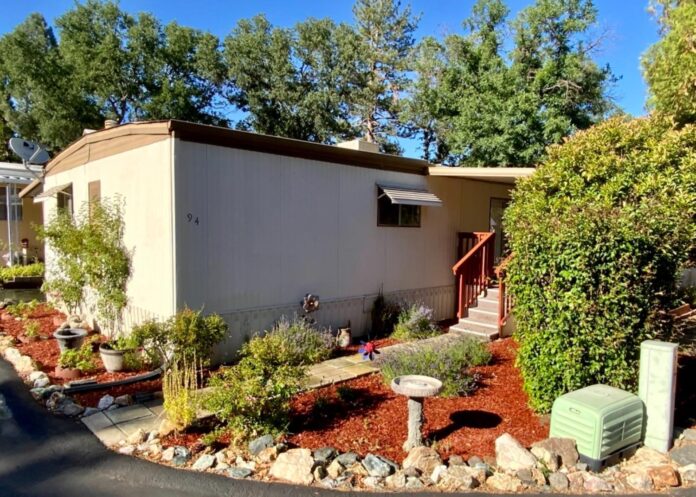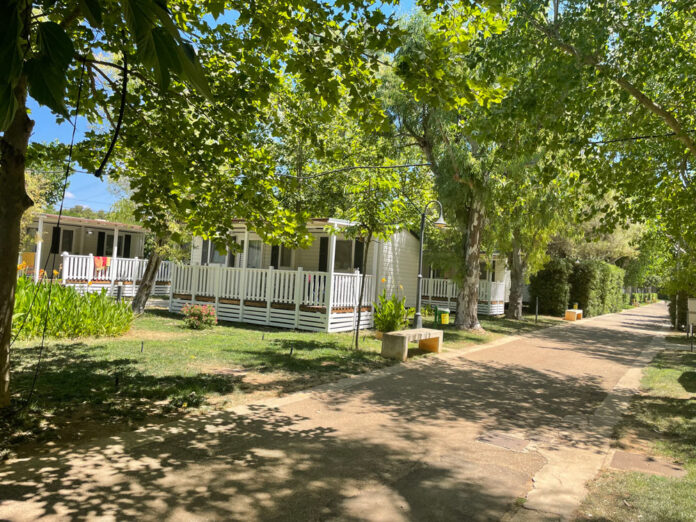The real estate market is ever-evolving, and within its vast spectrum, mobile home parks have found their niche, gaining significant traction in recent years. This unique segment offers affordable housing solutions, leading to an increasing number of individuals and families gravitating towards such communities
. As a result, the opportunity for mobile home park owners to capitalize on this surge is ripe. Yet, with potential profits comes the challenge of ensuring a seamless, efficient selling experience. This comprehensive guide dives deep, outlining the pivotal strategies sellers should consider. Aim to ensure that every mobile home park owner can not only achieve a successful sale but also relish a stress-free journey along the way.
Understanding Market Trends

It’s imperative to recognize that the mobile home park market isn’t a monolithic block—it’s dynamic, intricate, and influenced by various socio-economic factors. For instance, the rise in urban living costs has seen a shift towards affordable housing options like mobile homes. Additionally, the sense of community and shared amenities these parks offer are increasingly appealing to today’s generation. But how does this all connect to selling?
Simple: aligning with these consumer trends and understanding the broader real estate landscape ensures that properties not only stand out but also fetch competitive prices. Dive deep into market research, consumer behavior patterns, and even competitor strategies to ensure your sale aligns harmoniously with market demand, offering a win-win for both you and the potential buyer.
Pre-Sale Preparation

Creating a lasting first impression is paramount. While the intrinsic value of a property is essential, aesthetics and appeal can’t be downplayed. This is where the art of staging comes into play. A well-maintained park with landscaped gardens, freshly painted units, and rejuvenated communal areas speaks volumes. It says, “This property is cared for.” Going the extra mile, like offering virtual tours, can significantly expedite the sale process.
Regular maintenance—ensuring roadways are clear, updating communal areas, ensuring safety protocols, and even creating green spaces—can act as a value multiplier. Your aim should be to ensure potential buyers envision themselves as part of the community from the very first glance.
Accurate Property Valuation
In the realm of real estate, setting the right price can make or break a sale. Beyond the tangible aspects—like the location, current occupancy rates, and amenities—intangible elements such as the park’s reputation, potential for expansion, and community vibe play significant roles.
Overpricing might alienate potential buyers, while underpricing could mean leaving money on the table. Collaborating with professionals, perhaps even considering multiple appraisals, ensures you strike a balance, achieving a valuation that mirrors the park’s true worth and the current market’s pulse.
Engaging Real Estate Professionals

Real estate isn’t just about property—it’s about people. And it’s the professionals who bridge the gap between sellers and potential buyers. Real estate agents or brokers bring expertise, networks, and negotiation skills to the table. They’re your advocates, ensuring your property is showcased in the best light and to the right audience.
But it’s not just about selling; they’re adept at managing the maze of paperwork, legal requirements, and the ever-important post-sale transition. When selecting an agent, look beyond their commission. Dive into their track record, especially when you try to sell mobile home park. Their expertise can be the difference between a sale and a stalemate.
Targeted Marketing and Promotion
In our digital age, effective marketing transcends traditional methods. While billboards and newspaper ads have their place, virtual platforms, engaging video tours, and strategic social media campaigns are game-changers. But beyond mediums, it’s the message that counts.
What makes your park unique? Is it the community-driven events, the pet-friendly policies, or the proximity to urban hubs? Tailoring marketing strategies to highlight these USPs and leveraging both online and offline platforms ensures you resonate with the ideal buyer persona.
Offering Seller Financing Options

Financing can often be the bottleneck in property transactions. By stepping in and offering seller financing, you not only alleviate potential buyer concerns but also position yourself favorably in the market. This approach, where you essentially extend credit to the buyer, can facilitate faster sales, offer tax structuring benefits, and even ensure better sales prices. Both parties can benefit from this flexible, tailored approach to financing.
Transparency and Documentation
Transparent dealings instill trust. But in real estate, this trust is anchored in concrete, verifiable documentation. A well-maintained repository containing property titles, lease agreements, zoning law, maintenance records, and resident testimonials can expedite the sales process. By being proactive, anticipating questions, and having a clear, transparent paper trail, you not only ease the buyer’s due diligence process but also position your property as a reliable, hassle-free investment.
Due Diligence for Buyers

The other side of the coin is the buyer’s due diligence. Recognizing this process, facilitating it, and even guiding potential buyers through it can be invaluable. A proactive approach, where you anticipate potential queries, offer tours, and even introduce buyers to the resident community, solidifies trust. This trust can often be the linchpin that seals the deal.
Negotiation and Closing Process
Negotiations are the heartbeats of real estate deals. Understanding market dynamics, staying flexible yet firm, and empathizing with buyer perspectives can steer negotiations in your favor. Additionally, being informed about potential terms, conditions, and industry norms is invaluable. The closing phase, often seen as the home stretch, is laden with legalities. Engaging competent legal counsel ensures you’re well-prepped, with all i’s dotted and t’s crossed.
Transitioning Smoothly
The sale of a mobile home park isn’t just a transaction—it’s a transition for a community. Being attuned to resident concerns, ensuring open communication channels, and collaboratively working with the new owners can ensure a seamless transition. Consider hosting town-hall meetings, offering transition guides, and even facilitating introductions. Such gestures can go a long way in cementing positive future relationships.
Conclusion

The journey of selling a mobile home park, while intricate, can be both profitable and gratifying with the right strategies in place. From market research and meticulous pre-sale prep to transparent dealings and community-centered transitions, each step holds significance.
Leveraging professional expertise, fostering trust, and prioritizing community welfare can transform the sale from a mere transaction to a transformative experience. As you embark on this journey, arm yourself with knowledge, empathy, and a vision for the future, ensuring a legacy that resonates long after the sale.









